As you may know, our community is made up of roughly 20,000 freelance linguists across 278 countries, representing 154 nationalities (including double nationalities) and 1,399 language pairs. We could easily refer to you as linguistic superheroes as well – you accomplish amazing feats when it comes to translating, interpreting, and subtitling a tremendous number of words every day. In 2021 alone, you translated 429,506,179 words, which equates to:
- 35,792,182 each month
- 8,948,460 each week
- 1,278,351 each day
Acolad Community is – first and foremost – the home of international wordsmiths with numerous specialties. Here is an overview of who does what in our community:
|
Translation |
52.3% |
|
Proofreading, revision, review, quality check |
28.4% |
|
Interpreting |
22.6% |
|
SEO |
12.9% |
|
DTP, visual design |
6.9% |
|
Copywriting |
6.2% |
|
Multimedia, subtitling, transcription |
6.2% |
|
Other |
2.2% |
*2021 profile count
It’s difficult to express just how thankful and proud we are to work with you. You play a crucial role, and we wouldn’t be able to produce such high-quality translations and content without your outstanding skills and expertise!
This is why we would like to thank you by highlighting our community members and having you share your stories in your own words. This month, we will hear from nine freelance linguists working in eight fields – including marketing, finance, legal, life sciences and more. We asked them to tell us about their chosen specializations and why they enjoy being an expert in their favorite fields.
Enough introduction – let’s meet the linguists!

Aurélien – Legal
How long have you been working as a translator in the legal field?
I have been working as a freelance translator for 16 years now. I have been specialized in the legal field for 14 years, as it took me a couple of years to really decide which field I wanted to specialize in and to know what my limits are in terms of volume, content, deadlines, et cetera.
In fact, I wanted to be sure I could properly translate the texts I work on to the satisfaction of the clients. I mostly do translations, but sometimes I do proofreading when I want a change of scenery. I also help with alignments if needed.
Why did you choose this specialization? How did you become a specialist?
It seemed like a good fit at the time. After getting a baccalauréat in science and a Master’s Degree in “Langues étrangères appliquées” with a specialty in Law and Economics in Tours – and a Master’s in Translation of Communication Material in Saint-Étienne – this choice of specialization made sense to me, and I believe I made the right choice. I love the subject. One of my all-time favorite TV shows is about lawyers, Suits!
In a few words, what do you like most about being a legal translator?
Thanks to what I studied, I have a very grounded mind. I am a practical thinker. Legal translations are very logical, and if that is not the case, then there is an issue either in the source document or in the translation. We have a saying in France: “si c’est flou, c’est qu’il y a un loup” (roughly: “vague wording is cause for suspicion) J So little by little, I chose legal translation, or I could say it chose me – and we’ve been inseparable ever since! I love the topics involved, and the documents can also be very diverse: witness statements, letters to dignitaries, personal matters, and so on. The documents are never the same, and it’s such a broad topic. Furthermore, in the era of globalization, the Internet, et cetera, there is no shortage of work in this field!
Helena – Life Sciences
How long have you been working as a translator in the life sciences field?
I have been working in this field for 22 years now since I received my first life sciences assignments in 2000.
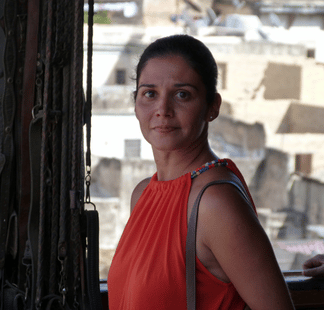
Why did you choose this specialization? How did you become a specialist?
I would say this specialization actually chose me. I started receiving life sciences assignments almost from the beginning of my career as a full-time freelance translator, and I found out I really enjoyed working in this field. As a result, I started researching and studying. One thing led to another, and now this is my first field of expertise.
In a few words, what do you like most about being a life sciences translator?
I have been very curious since I was a little girl, and I have always read about all kinds of topics. So for me, this is an opportunity to learn different things every day and to be at the forefront of new developments, treatments, devices, drugs, et cetera, which I find very exciting.
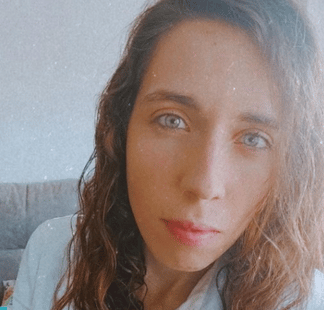
Paula – European Field
How long have you been working as a translator in the European field?
I have been working in that field since the beginning of my professional career in 2015. The summer of that year, after finishing university, I went to live in Lisbon to do an internship at Euroscript (which later changed its name to Amplexor, and later merged with Acolad).
From 2015 to 2018 I was working in-house there, and in summer 2018 I went back to Madrid. Since then I’ve been working as a freelancer. From the beginning, I was dedicated to the EC DG Growth project, and currently I am still involved in many EU projects, such as the European Parliament project or the European Schools one, with Acolad.
Why did you choose this specialization? How did you become a specialist?
At university, mainly during my Erasmus year, I did a lot of specialized translation in the legal field. It has always been a field that I have liked. I consider that, luckily, there is a lot of work in the field (because they never stop passing new laws/regulations), and when I started working in the company in-house, I had the opportunity to start on that project. I learned a lot at the beginning, since I was lucky enough to receive training from people who had been working on European projects for many years. Today, thanks to all that training (and of course, to the continuous training I do every day), I can say that it is definitely my area of expertise and I am very confident with legal texts.
In a few words, what do you like most about being a European specialist translator?
Honestly, what I like the most is that I can translate on so many subjects. After all, laws can range from the regulation of drones to vaping, for example, to the regulation of vaccinations for COVID (a very recurrent topic in recent years). So the range of topics is huge, and that’s something I love – being able to learn about all the current issues. My friends (non-translators) always tell me that I am very lucky because I get to know all the new laws even before they are approved. I can acquire a lot of general knowledge, and in the end they are still important texts. It is very cool to be able to feel that your work is useful and important. That’s one of the things I wanted to achieve the most when I started as a translator: to feel that my work would be useful.
Gaetan – Finance
How long have you been working as a translator in the finance field?
I started as a financial translator back in 2002, so that makes it exactly 20 years ago.
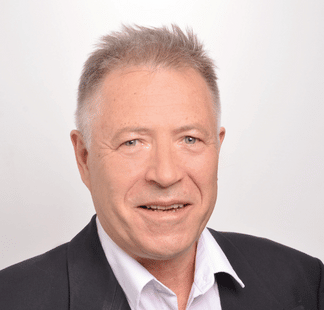
Why did you choose this specialization? How did you become a specialist?
By chance, really. The first job I got when I started as a full-time translator was with a company in the City of London that compiled digests of the financial press for various banks and corporate clients. I got sort of hooked on the subject matter and have not looked back since.
In a few words, what do you like most about being a finance translator?
The field of finance is often intimately linked with politics and economics, subjects that all resonate with me. Working with documents that deal with the financial markets gives you a sense of what’s going on in the world at large, and I really like this.
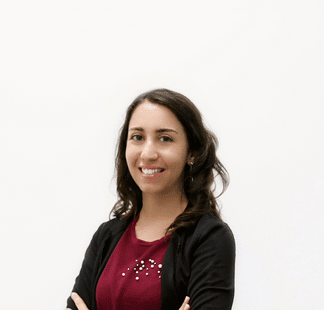
Raffaella – B2B technical
How long have you been working as a translator and reviser in the B2B technical field?
I have been working as a translator and reviser in the B2B technical field for seven years now, six of which have been full-time.
Why did you choose this specialization? How did you become a specialist?
I chose this specialization because it’s a very wide and interesting field that allows me to continuously grow my knowledge about various industries and technical sectors.
In order to get where I am today, I got a Master’s Degree in Technical Translation and then continued to deepen my knowledge with online seminars and workshops. But it’s also with several years of hands-on experience that I became an expert in my field.
In a few words, what do you like most about being a B2B technical translator and reviser?
I like the fact that the B2B technical field involves a very wide variety of sectors and industries (from robotics and technology to manufacturing, agriculture, transportation, metal industry and so on). It’s always different and never boring. I also like that I get to work for several great and globally known companies and learn about the latest developments in technologies related to those specific fields.
Ieva – Public/Governmental field
How long have you been working as a translator in the public/governmental field?
For nine and a half years.
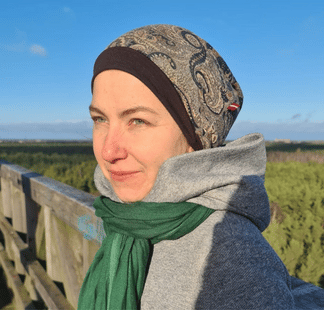
Why did you choose this specialization? How did you become a specialist?
The specialization chose me, so to say. I joined Euroscript Baltic (which later became Amplexor Latvia and now has merged into Acolad) as an in-house translator, and the agency had won several EU procurement contracts for translation services, so that was the content I was supposed to translate. After years of translating this type of documents, I’ve gotten to know the specifics and am still working in the field even after becoming a freelance translator. Freelancing has opened doors to other fields as well, such as tourism, consumer goods, et cetera, so I get a good mix of governmental/legal and more marketing-oriented content in my job as a translator.
In a few words, what do you like most about being a public/governmental specialist translator?
Predictability and order, i.e. a sufficient amount of work I’m being offered, a good set of reference materials, and regular feedback.
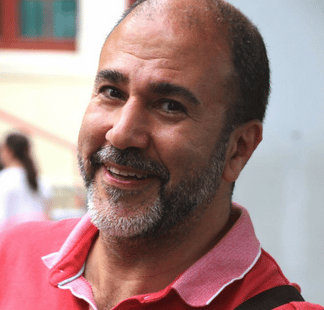
Diego – Life Sciences
How long have you been working as a translator in the life sciences field?
I started working as a life sciences translator in 1998 when I lived in Canada. I am a veterinarian, and I was waiting to be certified to work in Canada when I met some very nice people at the immigration center who worked for a translation agency. They liked me and proposed to collaborate with them.
Why did you choose this specialization? How did you become a specialist?
My training as a veterinarian and my passion for languages brought me to this idea of working as a translator. I then attended a localization and translation school, and I also obtained a certificate in life science translations. I quit my vet job in 2004 to dedicate myself full-time to this job.
In a few words, what do you like most about being a life sciences translator?
I like the freedom that comes with the freelancer’s life, and the fact that I’ve managed to stay home to work and see my children grow while being by their side all the time. I find life sciences particularly interesting, both because of my training as a vet and as a former scientist (I worked as a clinical researcher for a year).
Jimmy – E-commerce
How long have you been working as a translator and transcreator in the E-commerce field?
Over 12 years, since 2009.
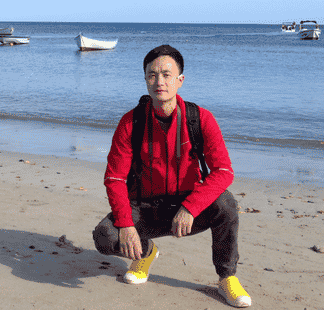
Why did you choose this specialization? How did you become a specialist?
I actually majored in marketing and got my Master’s in Marketing Management in 2008. In my early career, I was responsible for marketing, translation and project management. Although I did a good job in these areas, I received frequent positive feedback about my translation. I think it’s my marketing background makes me able to think from a marketer’s perspective, so I can translate in a way that really gets their point and fits their appetites. Then I started to further polish my language skill and spent more time and effort on translation. And now, the role of being a linguist has become an important part of my life.
In a few words, what do you like most about being an E-commerce translator and transcreator?
I usually work with the Acolad (Amplexor) internal linguist team to handle challenging test translations for clients from all walks of life. It’s an exciting moment when I’m told that the translation we did really delighted the end client. What else? When I see the translation I provided finally launched on their website, social media, localized video, et cetera, it’s really a great joy. It’s about the trust and recognition of my efforts, especially when these end clients are famous and big names in their industries globally. This is what I like most about being a marketing/e-commerce translator and transcreator.
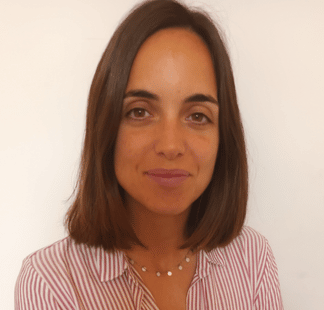
Ingrid – Marketing
How long have you been working as a translator and reviser in the marketing field?
I have been working as a translator and reviser in the marketing field for different industries since 2016.
Why did you choose this specialization? How did you become a specialist?
I had been working in more formal texts for two years, and I wanted to add some creativity to my job. Therefore, I started accepting small marketing tasks from the fashion and luxury industries, and later on I had the opportunity to participate on a big project in the travel and tourism sector. During this process, I decided to dig deeper in this field and took a transcreation course, which gave me new ideas and helped me discover and further develop my imagination and creativity.
In a few words, what do you like most about being a marketing translator and reviser?
I enjoy working in the marketing field because it touches different industries, it allows me to explore my creativity and it stimulates my imagination.
We hope these translators’ stories have inspired you! At Acolad Community, we love hearing about our freelancers’ experiences – would you like to share your story as a freelance linguist for a specific field?
Just tell us all about it here! 👇
